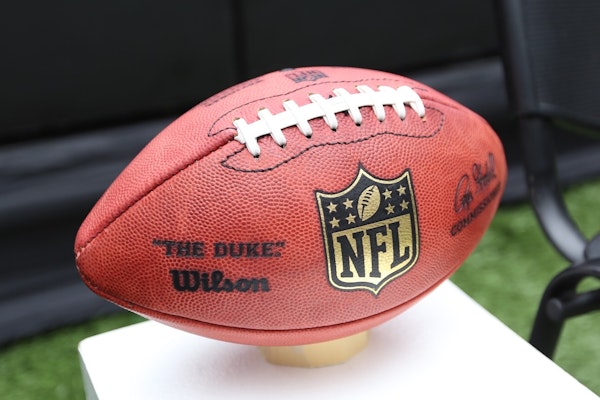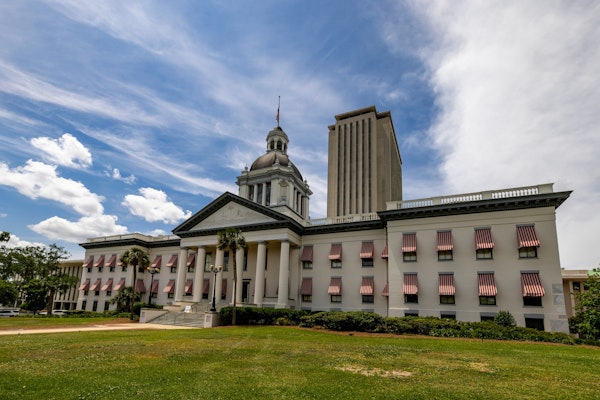
California Court Rules NFL Team Exempt from Workers’ Comp Claim by Retired Player
A retired NFL player’s claim for cumulative injury is denied under California’s tightened workers’ comp rules for out-of-state athletes, highlighting key jurisdictional limits.
October 15
Legislation & Regulation
Liability
Workers' Compensation
California
Georgia

Georgia Funeral Home Investigation Expands With Dozens of New Charges
Georgia state investigators have filed 38 new charges in an ongoing criminal case involving a funeral home that was previously evicted in late 2024.
October 7
Fraud
Insurance Industry
Liability
Litigation
Georgia

How Inflation, Litigation, and Talent Shortages Are Reshaping Specialty Insurance Claims
A recent report from Argo Group highlights three converging forces shaping the future of specialty insurance: inflation, litigation volatility, and a deepening talent gap.
October 7
Insurance Industry
Litigation
Underwriting
Florida
Georgia

Why the Atlantic Hurricane Season Has Suddenly Gone Quiet in September
Despite reaching the statistical peak of hurricane season, the Atlantic basin is unusually quiet this September, with no active storms and limited tropical development expected.
September 10
Catastrophe
Insurance Industry
Property
Risk Management
Florida
Georgia
North Carolina
Tennessee
Texas

Underwriting Profit Triples for U.S. Property/Casualty Insurers in Early 2025 Despite Mixed Income
The U.S. P/C insurance industry posted a $11.5B underwriting gain in H1 2025, aided by fewer Q2 catastrophes, despite a sharp decline in investment-driven net income.
September 4
Catastrophe
Insurance Industry
Property
Underwriting
California
Georgia
Texas

Delivery Drones Are Expanding Rapidly as Safety, Cost, and Regulatory Challenges Persist
As FAA regulations evolve, drone delivery is scaling to more U.S. cities, though high costs, airspace safety, and privacy concerns continue to slow full adoption.
August 14
Legislation & Regulation
Property
Risk Management
Technology
Arizona
Florida
Georgia
Kansas
Missouri

From Cold War Deals to Nuclear Verdicts Reclaiming the Insurance Lawyer’s Role
A Cold War prisoner swap led by an insurance lawyer reminds us that claims professionals still shape high-stakes outcomes—if we stay sharp, strategic, and proactive.
August 1
Insurance Industry
Legislation & Regulation
Litigation
Risk Management
Florida
Georgia

Rising Litigation Costs and Tort Reform Momentum Shape Liability Claims in 2025
Tort reform efforts in states like Georgia and Florida are reshaping the liability claims landscape in 2025, as litigation costs soar and attorney involvement rises rapidly.
August 1
Insurance Industry
Legislation & Regulation
Liability
Litigation
California
Delaware
Florida
Georgia
Louisiana

Georgia Countertop Manufacturer Fined for Exposing Workers to Dangerous Silica Dust
OSHA cited Brazilian Stone Design LLC with seven serious violations after determining employees were exposed to unsafe levels of respirable crystalline silica on the job.
July 12
Legislation & Regulation
Property
Risk Management
Workers' Compensation
Georgia

How Georgia Can Tackle Rising Insurance Premiums and Loss Ratios
Georgia homeowners face surging premiums after back-to-back hurricanes. Lawmakers and insurers are exploring solutions to stabilize the market and protect consumers.
June 9
Catastrophe
Legislation & Regulation
Property
Risk Management
Alabama
Arkansas
Florida
Georgia
Louisiana

Storm Surge Risk Threatens Billions in Coastal Property Value Across 20 States
Over 6.4 million homes in coastal U.S. states face moderate or greater storm surge risk, with $2.2 trillion in potential reconstruction costs, according to 2025 Cotality data.
June 2
Catastrophe
Legislation & Regulation
Property
Risk Management
Alabama
Connecticut
Delaware
District Of Columbia
Florida

Warner Robins Insurance Agent Charged with Bank Fraud over Misuse of $220K in Client Funds
A former Alfa Insurance agent in Warner Robins faces federal charges for allegedly directing a client to withdraw $220K, which he used to pay others’ insurance premiums.
May 20
Fraud
Insurance Industry
Legislation & Regulation
Property
Georgia

Insurance Leaders Gain Cutting-Edge Skills at CPCU Society’s In2Leadership Training in Atlanta
More than 200 insurance professionals gathered in Atlanta for CPCU Society’s In2Leadership event, gaining practical leadership training from University of Georgia faculty.
May 8
Education & Training
Insurance Industry
Risk Management
Technology
Georgia

States Move to Require Speed-Limiting Tech for High-Risk Drivers
In response to rising traffic deaths, several U.S. states are advancing legislation requiring speed-limiting devices in vehicles driven by repeat offenders or high-risk drivers.
May 7
Auto
Legislation & Regulation
Risk Management
Technology
California
District Of Columbia
Georgia
New York
Virginia

Florida Senate Blocks Attempt to Roll Back Property Insurance Reforms
Florida’s Senate rejected a House effort to reinstate one-way attorney fees, preserving reforms that have reduced lawsuits and stabilized the state’s property insurance market.
May 5
Insurance Industry
Legislation & Regulation
Litigation
Property
Florida
Georgia





